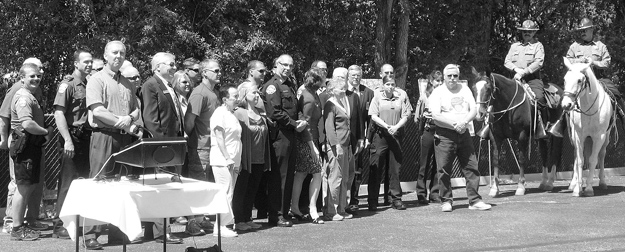Mayor Suthers' advice to residents: no to panhandlers, yes to homeless-helping groups
 Colorado Springs Mayor John Suthers
Colorado Springs Mayor John Suthers
Courtesy photo
|
In an e-mail statement provided in response to a Westside Pioneer question, Suthers said that giving to “effective non-profits that serve the homeless… really is the more beneficial option.”
The mayor's position was applauded by Welling Clark, the chair for the Westside's Avenue Task Force, which focuses on upgrading the West Colorado Avenue corridor. The ad hoc group of residents, business people and elected officials, working with City Police and the County Sheriff's Office, has promoted the same message for the past three years.
“I'm really pleased to hear the mayor said this,” said Clark, who is also the president of the Organization of Westside Neighbors (OWN). “This brings the issue to the forefront.”
He added that he plans to "make it official" by requesting votes on the mayor's position from the elected boards for Colorado Springs, El Paso County and Manitou Springs.
Here is Suthers' full statement: “Our city is blessed with a number of effective non-profits that serve the homeless. These agencies have expertise in helping underserved populations and are beholden to regulations that require that funds collected go to serve their stated missions. Therefore, if residents are looking to help, I encourage them to support heartily these deserving agencies as the most
 Welling Clark is third from the left in this July
2013 photo showing many of the Avenue Task Force members with law
enforcement representatives. The shot was taken during a press conference
announcing the group's effort to discourage panhandling and encourage donations
to groups that help the needy.
Welling Clark is third from the left in this July
2013 photo showing many of the Avenue Task Force members with law
enforcement representatives. The shot was taken during a press conference
announcing the group's effort to discourage panhandling and encourage donations
to groups that help the needy.
Courtesy of Avenue Task Force
|
The mayor's stance comes on the heels of Colorado Springs recently deleting - in response to American Civil Liberties Union (ACLU) pressure and recent court rulings - nearly all its panhandling-control laws. The prevailing argument was that such laws were unconstitutional because panhandling is free speech.
The old city laws had prevented active begging from anyone in the following cases: on a city bus, at a bus stop, at a sidewalk café, in a parking lot or garage, within 20 feet of an ATM or building entrance, in a car in traffic, getting in or out of a parked car or standing in a line. Other city laws had prohibited begging on a street median or after dark.
The Task Force's “It's OK to Say No” effort, which has featured an educational video and signage, was motivated by police information that panhandlers often have addiction problems and use handouts to buy liquor or drugs. The idea is that generous people should instead donate to local entities that specialize in helping such people.
A likely side result of fewer gifts to panhandlers, Clark agreed, would be a reduction in their numbers.
The Pioneer asked the mayor about the matter after learning that the Albuquerque city government advises its residents not to give money to panhandlers and even has programs putting them to work.
Westside Pioneer article
(Posted 3/21/16;
Community:
(Ongoing Issues)
Would you like to respond to this article? The Westside Pioneer welcomes letters at editor@westsidepioneer.com. (Click here for letter-writing criteria.)